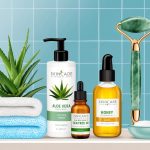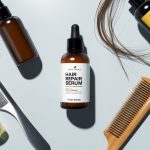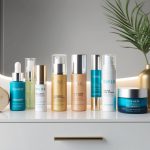How to Prevent Hair Loss Naturally: Tips, Remedies, and Products That Work
Home Remedies for Thinning Hair
Various home remedies may help with thinning hair using common household or kitchen ingredients. Diet plays a key role; high-protein foods such as nuts, beans, and lean meats are important, since hair growth relies on adequate protein intake.
Some people choose herbal options—aloe vera, ginseng, and saw palmetto are used traditionally for supporting hair regrowth by nourishing the scalp and reducing inflammation. Zinc and biotin supplements, if deficiencies are present, can also be beneficial, as people lacking these nutrients often experience thinning.
For topical care, ingredients like onion juice and rosemary oil are frequently mentioned, but more research is needed. It’s important to tailor remedies to individual hair and scalp needs.
Explore the spectrum of home remedies for thinning hair for options that match specific hair types and concerns.
Scalp Massages and Natural Oils
Regular scalp massages may increase blood circulation to hair follicles, encouraging hair growth and improved scalp health. Using fingertips, gentle pressure is applied in circular motions for 5-10 minutes daily.
Natural oils such as coconut oil, peppermint oil, and jojoba oil serve as both lubricants and nutrient sources. Coconut oil penetrates the hair shaft, reduces protein loss, and supports scalp hydration.
Peppermint oil, in particular, has shown promising results for stimulating hair regrowth by improving circulation in animal studies. Always dilute essential oils before use to prevent irritation.
Massaging oils into the scalp can relax muscles, hydrate skin, and potentially assist in reducing hair thinning. For more information, see this guide to scalp massages and natural oils.
Choosing the Right Hair Care Routine
Developing the best hair care routine means understanding your hair type, using the right products, and protecting scalp health. By taking consistent care and avoiding damaging habits, it is possible to support stronger hair follicles and maintain healthy hair.
Gentle Shampooing and Conditioning
Selecting a gentle shampoo and conditioner is crucial for maintaining healthy hair and a balanced scalp. People should choose formulas free of sulfates and harsh detergents, as these can strip away natural oils needed by the hair follicles.
Shampoo should be applied primarily to the scalp, not the full length of the hair. This helps cleanse away dirt and build-up without causing dryness.
Conditioning focuses on the mid-lengths and ends to restore moisture and protect the hair shaft. Frequency matters; washing hair based on its oil or dirt build-up can prevent unnecessary dryness or irritation.
Those with oily hair might wash more frequently, while drier types may need less frequent washing for optimal scalp health. Specific care, as outlined by dermatologists, varies according to hair type and individual needs, supporting a healthy hair care routine.
Avoiding Harmful Hair Practices
Mechanical and chemical damage can accelerate hair thinning and loss. Brushing or combing hair too aggressively, especially when wet, weakens the hair shaft and may cause breakage.
Heat styling tools should be used sparingly and always with a heat protectant. Tight hairstyles, such as ponytails or braids, can pull on the scalp and lead to traction alopecia, a condition where hair follicles become damaged from stress.
Limiting the use of harsh treatments—including dyes, relaxers, and chemical straighteners—can preserve the health of the hair and support stronger growth. Gently styling and air-drying hair are practical ways to avoid unnecessary trauma, as recommended by dermatology experts.
Evaluating Natural Products and Supplements
Natural products, scalp serums, and key supplements are popular choices for those aiming to prevent hair loss and support hair follicles. Understanding ingredients and proven benefits can help consumers identify which options are most suitable for their hair growth and scalp health needs.
Natural Hair Growth Serums and Oils
Hair growth serums and oils feature plant-based ingredients like rosemary, peppermint, and pumpkin seed oil, which have shown potential to support scalp circulation and strengthen hair follicles. These formulas often avoid harsh chemicals that may irritate the scalp.
Many natural serums contain essential oils blended with carrier oils such as jojoba or coconut oil. Coconut oil, in particular, can help reduce protein loss in hair, and is valued for its moisturizing properties.
Some serums claim to stimulate blood flow around the follicles, promoting healthier, thicker strands. Users considering these products should look for serums free from artificial fragrances and preservatives.
Consistent use, often involving gentle scalp massage, may enhance absorption and boost results. Scientific backing for many natural oils is still limited, but several remedies, such as rosemary oil, show encouraging results in small studies and user experiences.
Supplements for Supporting Hair Health
Supplements play a key role in supporting hair health when dietary intake is lacking. Essential nutrients often found in hair loss supplements include biotin, zinc, iron, vitamin D, and fish oil rich in omega-3 fatty acids.
Omega-3s help reduce scalp inflammation and improve scalp health, creating favorable conditions for hair growth. Saw palmetto is another supplement sometimes promoted for hair loss due to its ability to block DHT, a hormone linked to hair thinning.
Balanced diets rich in antioxidants—from vegetables, fruits, and nuts—can also provide needed nutrients for the hair growth cycle. Caution is essential, as excess supplementation of certain vitamins, especially vitamin A, can actually worsen hair loss.
Those with specific deficiencies, such as low vitamin D, may benefit most from supplementation. Consulting a healthcare provider for blood tests can help identify what supplements, if any, may be appropriate.
Scalp Serums and Topical Solutions
Scalp serums and topical solutions are designed for direct application to the scalp, delivering active ingredients where hair follicles reside. These products may combine botanical extracts, peptides, and antioxidants to strengthen hair at the root.
Lightweight serums are preferred for daily use since they do not leave hair greasy. Many commercial and home remedies feature ingredients such as niacinamide or caffeine, aiming to energize follicles and extend the hair growth phase.
Application typically involves parting the hair and dispensing drops directly onto the scalp, followed by a gentle massage for better absorption. Some scalp serums incorporate natural extracts shown to encourage hair growth in early studies, such as ginseng or ginger.
For those with sensitive skin, alcohol-free and fragrance-free options can reduce the risk of irritation. For a list of natural and widely used remedies, visit this guide to natural hair growth products and remedies.
Regular, prolonged use is often necessary to see visible improvements.



